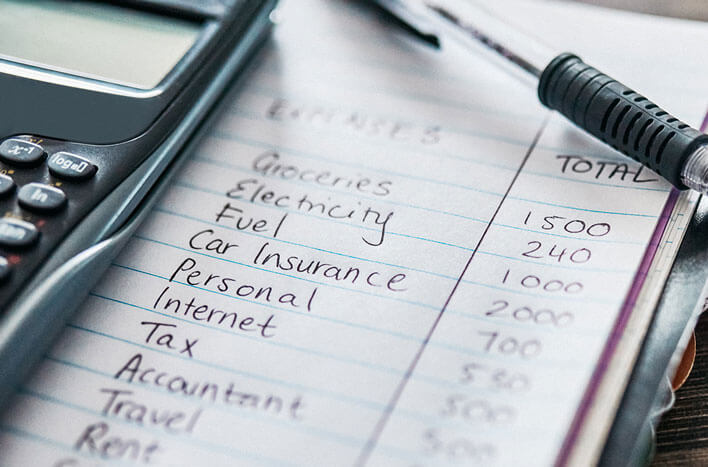Managing money effectively is a critical life skill, and personal budgeting lies at the heart of financial wellness. Whether you’re trying to pay off debt, save for a major purchase, or simply gain control over your spending, a well-planned personal budget is the key to achieving your financial goals.
Budgeting is not about restricting yourself—it’s about understanding your finances and making intentional choices. In this article, we’ll explore what personal budgeting is, why it matters, and how you can create a sustainable budget that works for your lifestyle.
What is Personal Budgeting?
Personal budgeting is the process of creating a plan for how you’ll spend and save your money. It involves tracking income, monitoring expenses, and allocating funds in a way that aligns with your financial goals. A budget serves as a roadmap for your finances, helping you prioritize necessities, avoid overspending, and prepare for the future.
Why Budgeting is Important
A personal budget does more than show you where your money goes—it gives you control. Here are several reasons why budgeting is essential:
- Financial Clarity: A budget helps you understand your cash flow, including how much you earn, spend, and save each month.
- Goal Setting: With a budget, you can plan for specific financial goals like building an emergency fund, paying off loans, or saving for retirement.
- Debt Management: Budgeting helps prevent and reduce debt by ensuring you live within your means and allocate funds toward repayments.
- Preparedness: A good budget includes savings that act as a safety net for unexpected expenses or emergencies.
How to Create a Personal Budget
Creating a personal budget is straightforward, but it requires honesty, consistency, and regular updates. Here’s a step-by-step guide:
1. Calculate Your Monthly Income
Start by identifying all sources of income. This includes your salary, freelance earnings, rental income, side hustles, and any other regular cash flow. Use net income—your earnings after taxes and deductions—since this represents the actual amount available for spending.
2. Track and Categorize Expenses
For at least one month, track every expense. Categorize your spending into fixed and variable costs:
- Fixed expenses: Rent or mortgage, utilities, insurance, car payments
- Variable expenses: Groceries, entertainment, clothing, dining out, transportation
Be thorough and include occasional or irregular costs such as annual fees or holiday spending. Many people are surprised at how small daily expenses can add up.
3. Set Financial Goals
Define both short-term and long-term financial goals. Short-term goals might include paying off a credit card or saving for a vacation, while long-term goals could involve building a retirement fund or purchasing a home.
Having clear goals makes budgeting more motivating and gives you a reason to stick to the plan.
4. Choose a Budgeting Method
There are various budgeting methods, and the best one depends on your financial habits and preferences. Here are three popular approaches:
The 50/30/20 Rule
- 50% of income goes to needs (housing, groceries, utilities)
- 30% goes to wants (entertainment, hobbies)
- 20% goes to savings and debt repayment
Zero-Based Budget
Every dollar has a job. Your income minus expenses equals zero. This method requires you to allocate every dollar toward a purpose, ensuring nothing is wasted.
Envelope System
Use physical envelopes (or digital apps) for each spending category. When an envelope is empty, you can’t spend any more in that category for the month.
5. Allocate Funds and Monitor Progress
Once you’ve chosen a method, assign dollar amounts to each category. Make sure your expenses don’t exceed your income. If they do, you’ll need to cut back in certain areas or increase your income.
Track your spending weekly to ensure you’re staying on course. Use apps, spreadsheets, or even a simple notebook to monitor your finances.
6. Adjust and Improve
Budgets aren’t static—they should evolve with your life. Reassess your budget monthly and make adjustments as needed. If you get a raise, pay off debt, or experience a major life change, revisit your budget and update it accordingly.
Tips for Successful Budgeting
Automate Your Finances
Automating bill payments and savings transfers ensures you stay on track without relying on willpower. Set up direct deposits to savings accounts and use automatic payments to avoid late fees.
Build an Emergency Fund
An emergency fund protects you from unexpected costs like medical bills, car repairs, or job loss. Aim to save at least three to six months’ worth of living expenses.
Cut Unnecessary Spending
Review your variable expenses for areas to reduce. Cancel unused subscriptions, dine out less, or look for cheaper alternatives. Small changes can free up money for savings or debt repayment.
Use Budgeting Tools and Apps
Digital tools can simplify budgeting by syncing with your bank accounts and categorizing expenses automatically. Popular apps provide insights into spending trends, track progress toward goals, and alert you when you’re overspending.
Stay Motivated with Visual Goals
Visualizing progress helps keep you motivated. Use charts, savings thermometers, or goal-tracking boards to see how far you’ve come and how close you are to your goals.
Common Budgeting Mistakes to Avoid
Being Too Restrictive
A budget should guide, not punish. If you deprive yourself too much, you’re more likely to abandon the plan. Include some discretionary spending for things you enjoy.
Ignoring Irregular Expenses
Forget to budget for annual fees, gifts, or car maintenance, and you’ll likely derail your plan. Plan ahead by setting aside a small amount each month for these costs.
Not Tracking Spending
Creating a budget is only the first step. If you don’t track your spending, you won’t know if you’re staying on target.
Failing to Communicate in Shared Budgets
If you share finances with a partner or family, budgeting should be a joint effort. Communicate openly about goals and spending decisions to avoid conflict.
The Long-Term Impact of Budgeting
Consistent budgeting leads to better financial habits, reduced stress, and greater financial freedom. Over time, budgeting can help you:
- Eliminate debt
- Grow your savings
- Invest in future goals
- Prepare for retirement
- Improve your credit score
- Gain peace of mind
A well-maintained budget also gives you flexibility. You’ll be in a stronger position to handle life’s surprises and take advantage of new opportunities without financial strain.
Conclusion
Personal budgeting is one of the most powerful tools for taking control of your financial life. It doesn’t require advanced math skills or financial training—just discipline, awareness, and a willingness to plan ahead. Whether you’re living paycheck to paycheck or looking to build wealth, a personalized budget can help you make smarter decisions and reach your financial goals.






1 thought on “Personal Budgeting: How to Take Control of Your Finances”
Pingback: Automating Your Money Will Change Your Financial Future - Finances 4 You